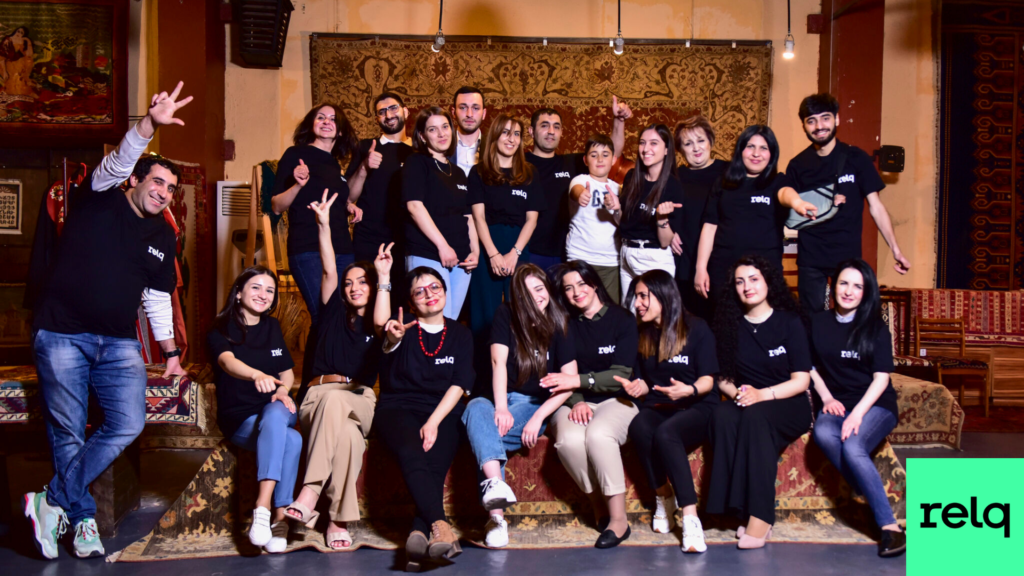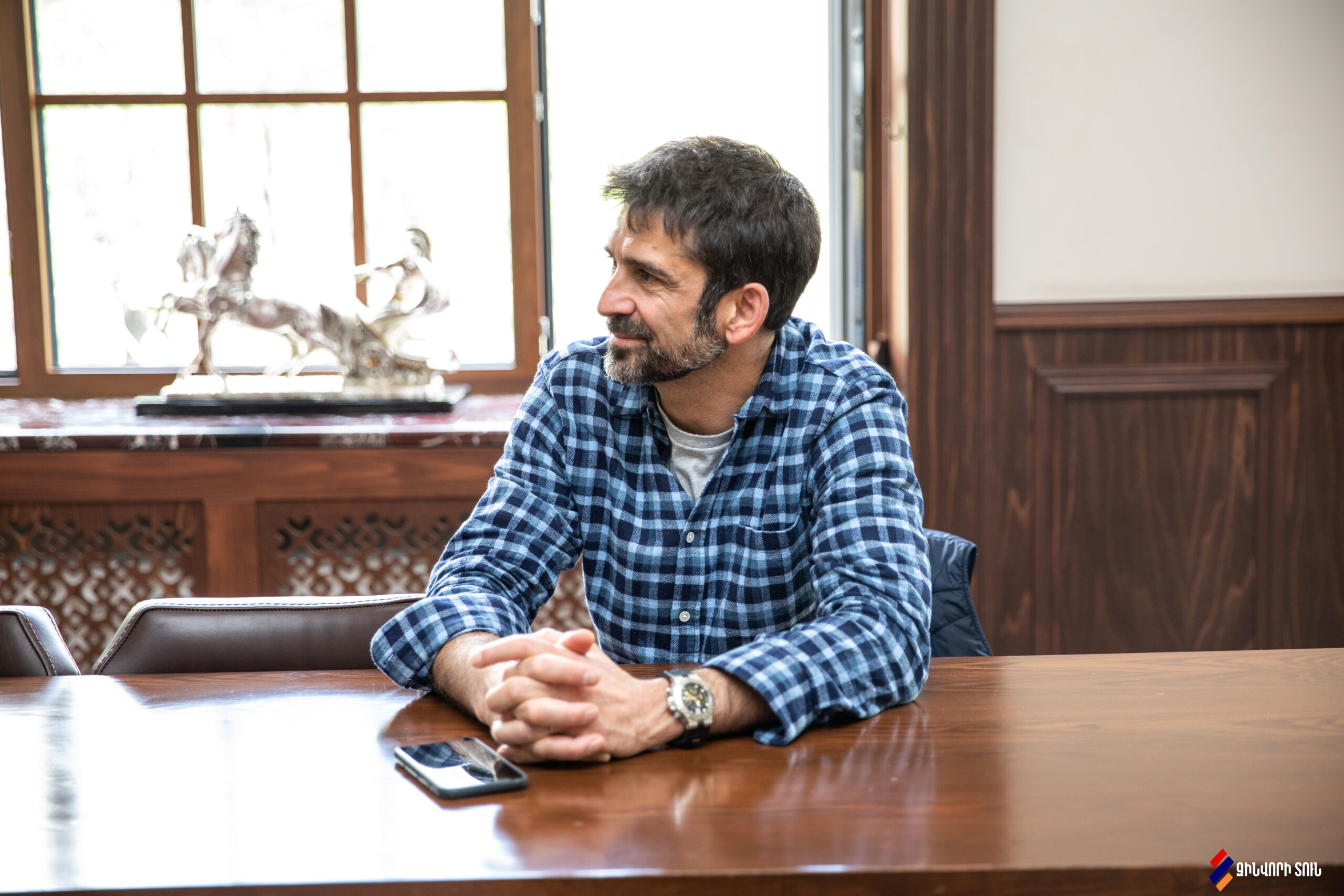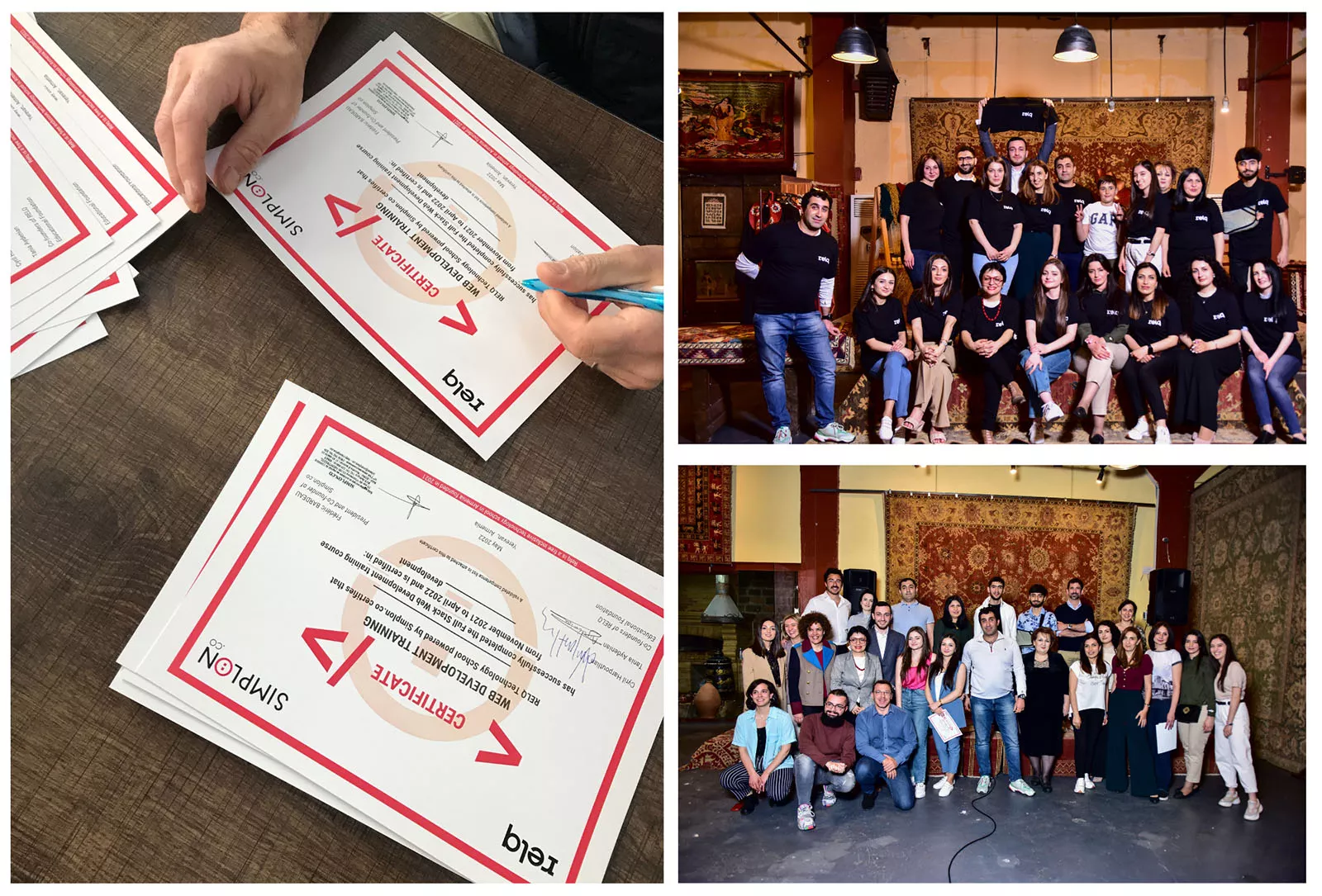
After the Karabakh war in 2020, Cyril Harpoutlian decided to participate in the reconstruction of Armenia through a free, inclusive and supportive digital school. His ambitious and innovative project found, from the beginning, the financial support of Armenia Peace Initiative. In this article, Cyril tells us about the birth of Relq and the long road it has travelled, its success as well as the new challenges facing the project.
RELQ was born at the end of the devastating 44-day war in Karabakh with a strong ambition: to promote the social reintegration of the war-affected, weakened and handicapped populations through free training in IT development․ It was Cyril Harpoutlian’s son who inspired him to create a digital school. “During the war, I used to spend my weekends with my children making medical and food parcels to send to Armenia, to families affected by the war,” Cyril recalls. “But one day my son, who was 9 years old at the time, told me in a desperate voice that he felt that what we were doing was not helping. When I asked him what I could do, he answered without hesitation: Teach them to do your job, Dad!” This sentence sounded like a trigger, and action was not long in coming. Cyril decided to launch a project with a strong societal impact that would allow people affected by the war to find work in Armenia and to maintain a virtuous dynamic in the long term.

Relq is based on four pillars: inclusion, network, experimentation, impact. The school’s mission is therefore to overcome social burdens and develop connected and empowered communities in active interaction with other programmes. Relq also aims to develop a culture of practical experimentation with the right actors to support the transition to the labour market, but above all to promote technology and innovation for sustainable impact. It is a school of the future that wants to contribute to Armenia’s social, environmental and economic challenges.
The road is long, the success – great
On the road to realising this ambitious project, Cyril encountered a number of difficulties, the most important of which was finding funding. “It’s no secret that finding a first sponsor is the most difficult thing in the realisation of a project. Once you find it, the others follow. In this sense, the trust and support of Armenia Peace Initiative was extremely important to us,” says the Relq founder. API was one of the first organisations to trust us with a project that did not yet exist. This trust helped us to find other sponsors. Thus, there was a whole surge of solidarity which enabled us to raise enough funds to ensure the financing of the first year of Relq”.
The other challenge was to recruit a team responsible for Armenia, France and the US. Cyril Harpoutlian notes that today RELQ is running on determined staff who believe in the power of technology and education. “All this would not have been possible without an enthusiastic team: Tania Aydenian, Xavier Kutalian, Valentina Poghosyan, Seda Papoyan”. Selected in the strategic roadmap of the “Ambitions France-Armenia” programme, Relq is placed under the high patronage of Emmanuel Macron and Jean-Baptiste Lemoyne.
“Computer code as therapy”
All the learners have quite complicated life paths. Some stories particularly struck Cyril. “I remember a woman from Karabagh who had lost her husband and brother during the war and was left alone with her three children. She saw in Relq a point of attachment that would allow her to come back to life in some way,” recalls Cyril. “I also can’t forget the words of a soldier, disabled by the war, who saw computer code as therapy. Because of everything he had been through during the war, he couldn’t concentrate. And Relq, beyond what it gave him in terms of skills, also helped him to regain a taste for life and the strength to fight against his handicap. I think that’s great. It’s our greatest success”, concludes Cyril.
Why fund RELQ?
Every year, Armenia lacks between 2000 and 3000 computer specialists. Relq’s objective is to train people massively in digital skills but above all to accompany them into employment. “There is an extremely strong pull. Computer scientists have a standard of living that is unmatched by other professions. And as we want people to stay in Armenia and make a living from a well-paid job, this training is the best solution. So, thanks to Relq, we are not only offering work to vulnerable people, but also the desire to stay in Armenia and work for Armenian tech. The results prove that the Relq prototype works perfectly. “80 people trained in less than a year: this figure is quite significant. We are moving forward with an ambitious goal of doubling the size of the class to around 200 learners by 2022-2023.”
As a 100% free course, Relq lives on grants. This means that to go further, it needs regular funding. As the founder of Relq points out, the support of the Armenian government would be very important for the development of the project. “We see Relq as a tool for the people of Karabagh and Armenia. In this context, we would like the Armenian government to sponsor our initiative. We would like this Relq initiative, which is currently being pushed by a team of volunteers in France, Armenia and the United States, to become a real programme on a national scale, supported by the government. We already have the team, the method and the evidence. So we have everything we need to succeed. What we need now is funding and support from the Armenian government.”

You can discover Relq here.
